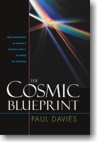(Keep the aspidistras flying.)
Persona Madness is a condition where anything someone says is accepted as truth because that person is considered to be a genius. Basket ball players with IQs hovering around their shoe size who talk like Susan Sontag, for example. But this is worse when people who are brilliant in one area, like Ghandi, or have a momentary inspiration, like Einstein, speak on other issues in which they have no knowledge, inspiration or special exertise. Einstein suffered largely from it, endorsing world socialism and initiating nuclear warfare ("My biggest mistake," he said later. Dude! Big mistake!) and celebrating every passing trend of the Euro avant garde after his 1905 discovery brought him celebrity status. The idolitry of the religious traditions carries over to a conventional secular life in which all truth is seen as scientific (this used to be called "scientism" - the blind faith of science; a world in which the Cigarette Smoking Man said, "Science is their religion.") Stephen Hawking today, perhaps more than any other, projects himself as a prophet whose hypothoses need no explaination, no matter how rediculas, simply because they popped into his head. His book, A Brief History of Time, brought coffee table pretentions to Suburban Moms and the rising classes (upper working class) 20 years ago, while obfuscating the material. Obfuscation was part of its cashe. Just to be considering the matter made you a far more formidible critter than your old lint head dad or share cropper grandfather 50 or 100 years ago. (Said the perceptive Tony Soprano psychiatrist to her son
 studying French Deconstructivists at the upscale New England college, Bard, "A Deconstructivist. And your grandfather a general contrator.") Zen asks you to remove mystery to find truth, not weave mystery to obscure clear thinking. (Einstein, incidentlally, made the claim that this religion was the only one to fit the needs of scientists. And he well explained himself on this point.) Hawking intentionally mystifies. Paul Davies book, A Cosmic Blueprint, published at the same time, clearly and eloquently explains the same material and links it to its enlightened traditions.
studying French Deconstructivists at the upscale New England college, Bard, "A Deconstructivist. And your grandfather a general contrator.") Zen asks you to remove mystery to find truth, not weave mystery to obscure clear thinking. (Einstein, incidentlally, made the claim that this religion was the only one to fit the needs of scientists. And he well explained himself on this point.) Hawking intentionally mystifies. Paul Davies book, A Cosmic Blueprint, published at the same time, clearly and eloquently explains the same material and links it to its enlightened traditions.In a speech June 13 in Hong Kong, Hawking said the survival of the human race depends on its ability to find new homes elsewhere in the universe because there's an increasing risk that a disaster will destroy Earth.
If we fail in the duties of this life and the dharma path on this earth, what in the world makes this 80's pop culture huckster staging a comeback think we would do better elsewhere?
No comments:
Post a Comment